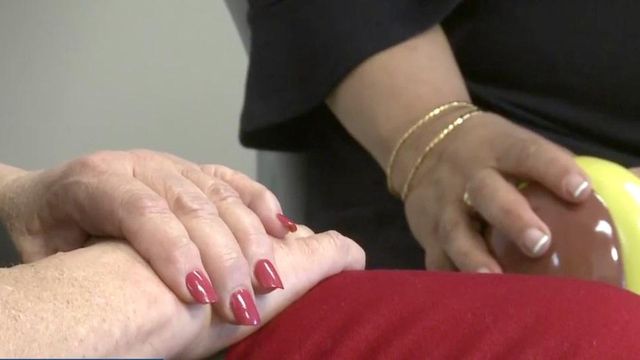Left untreated, liver disease can be deadly
Healthcare experts are concerned about an epidemic of liver disease, which is the leading cause for the need for a liver transplants and liver cancer.
Posted — UpdatedThe stealth ailment can lurk in patients who may not realize there is a problem until it becomes life threatening.
Six years ago, Sherry Stover, 67, a teacher, was rushed from her classroom to the hospital.
"I had severe pains in the middle of my chest," she said.
Doctors initially thought Stover was suffering from a heart attack. After undergoing a round of tests, Stover received a call from her doctor with a surprising diagnosis.
"He told me that I had cirrhosis and I said, 'No, you have the wrong patient because I don't drink,'" she said.
Stover, like many others, thought cirrhosis, or scarring of the liver, was only caused by alcoholism.
"No, as a matter of fact, 30 percent of the U.S. population has what we call non-alcoholic fatty liver disease," said Dr. Manal Abdelmalek, a hepatologist at Duke University Hospital.
He said the risk factors for the disease include obesity, diabetes, high cholesterol, high blood pressure, cirrhosis and a family medical history of fatty liver disease.
The disease, also known as NASH, or non-alcoholic steato hepatitis, affects 12 percent of the population. It represents a major cause for liver transplants.
Doctors say in many instances it begins as a silent disease
"There can be liver swelling, and over many, many years (lead to the) progression of scarring in the liver," Abdelmalek said, adding that the ailment can progress to nodules and cirrhosis.
Abdelmalek uses an ultrasound tool to measure stiffness in the liver, which can be an indicator of a problem.
The good news for many patients, however, is the condition can be reversed, largely through healthy lifestyle changes.
"We strongly encourage a Mediterranean diet (of) fresh fruits and vegetables and routine exercise," Abdelmalek said. "We just need to get our society up and moving."
Stover added that to our routine six years ago.
"And I went from 205 pounds to 165 pounds," she said.
Related Topics
• Credits
Copyright 2024 by Capitol Broadcasting Company. All rights reserved. This material may not be published, broadcast, rewritten or redistributed.





